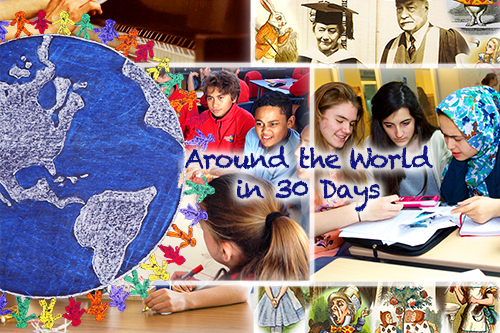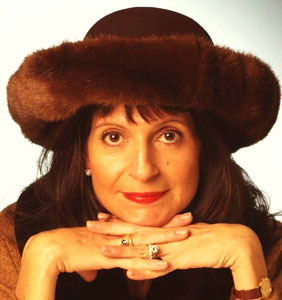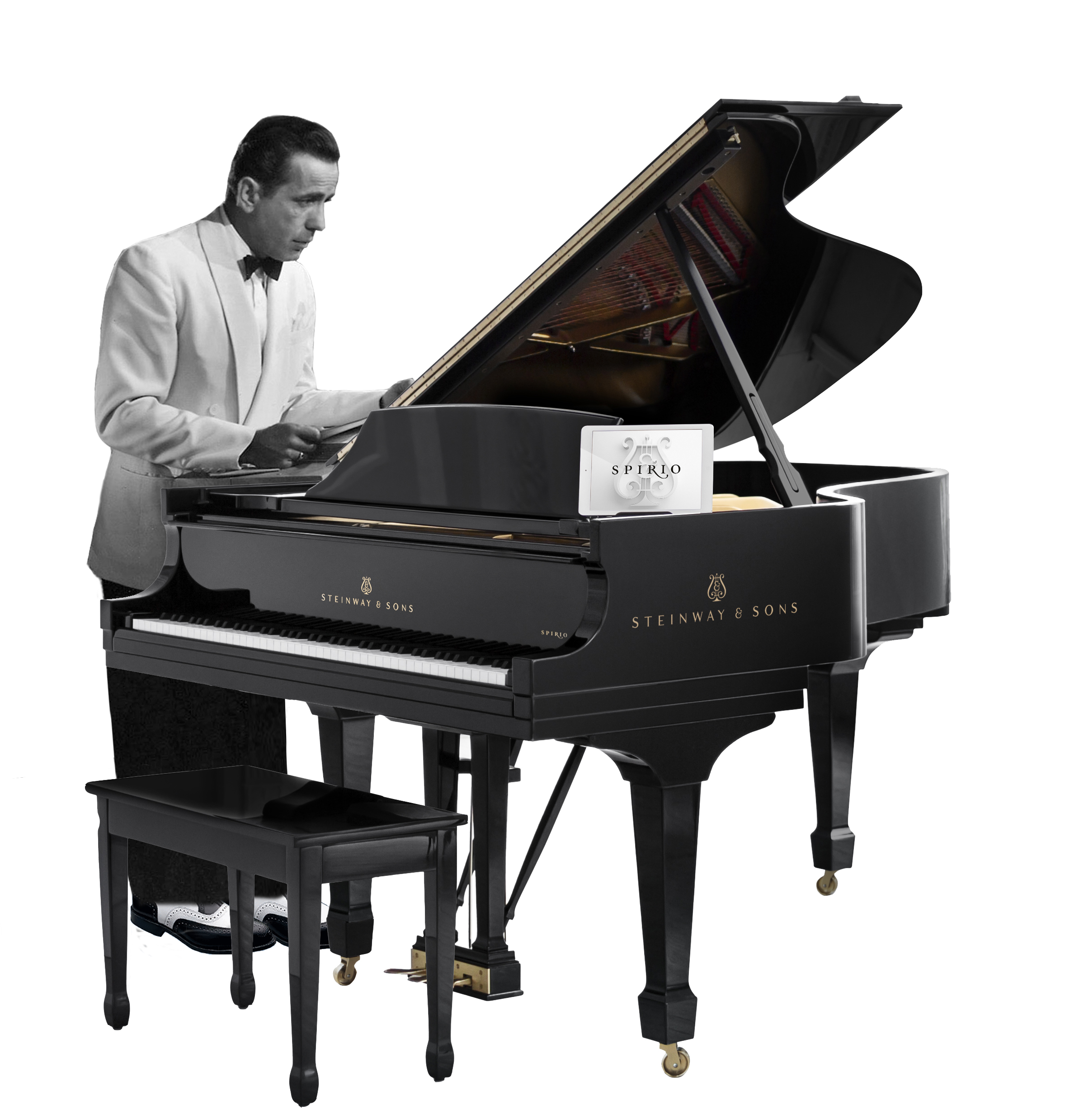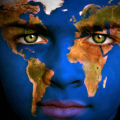
“Robôs que cuidam de nós à medida que envelhecemos. Ataques cibernéticos contra nossas casas. Animais extintos trazidos de volta à vida. Sensores onipresentes eliminando a privacidade como a conhecemos agora. Todo mundo vai ter um escândalo! Em dez anos, um pequeno fone de ouvido irá sussurrar o que está sendo dito a você em sua língua nativa quase simultaneamente ao idioma estrangeiro que está sendo falado.” Concordo com Alec Ross, autor de The Industries of the Future, that the most important job I have is being a Mom. My kids are growing up with challenges and opportunities my generation thought were fantastical themes in movie scripts.
What does this all mean for how we prepare our kids in school? What do we teach them about the innovations that are available right now and what do we teach them to ensure they are part of the innovations that are coming soon? For five years, A Pesquisa Global para a Educação has been exploring those questions; once again this month, we share more fascinating insights from around the world. Michael Sweeney, CEO da Steinway & Filhos, talked to me about the impact his new concert pianist – a robot called Spirio – will have on the world of music. Executive business leader Roland Kupers in The Netherlands wants us to focus more on systems learning. Director of Infinity Learn Limited, Dr Brian Annan in New Zealand, shares his vision for the future of schools, including why “some students will not see the need to go to school at all.” Por último, mas não menos importante, our top global teacher bloggers share tested tips for cultivating readers, and I reflect on my newest adventures in Wonderland as the book I originally published over 5 years ago goes back into stores just in time for Disney’s new film, Alice Through The Looking Glass.
Imagine Lang Lang performing Chopin at Carnegie Hall, mas você mora em Dallas e não pode ir para Nova York. With Spirio, there is the potential for the concert to be live-streamed into your living room. Michael Sweeney, CEO da Steinway & Filhos, discusses the miraculous capabilities of Steinway’s Spirio (a new high-resolution player piano that provides an unrivaled musical experience, indistinguível de uma performance ao vivo) and offers some insight into the future of music.
Dr. Brian Annan’s company, Infinito Saiba Ltd, explores the merger of learning and wellbeing. In his interview with A Pesquisa Global para a Educação, Brian envisions a future for schools that will extend the boundaries out into museums, bibliotecas, the corporate world and environmental communities. “[Estes] places are potential sites for learning and development whereby our youth contribute to community and environmental improvement. So the community at large rather than the school or network of schools is seen as the vital engine room for integration of technology and media.”
Roland Kupers wants students to develop the kind of habits conducive to understanding their world in all its complexity. We need a new science that is capable of explaining the intricacy that has been introduced to the world by globalization and technological advances. Por exemplo: “Understanding the influence of climate change on the crises of agriculture, urbanization and poverty in the Middle East casts a different light on the links between environmental policy and terrorism, and our choices therein”; e “Understanding that a human body is constituted of 90% non-human cells sheds a different light on the nature of our individuality.”
Language is the ultimate tool of humanity. Nosso professor Bloggers global são pioneiros e inovadores em áreas como integração de tecnologia, matemática treinador, educação especial, ensino de ciências, e equidade de género. This month we asked them to share answers to the question: How do we do a better job of cultivating young readers? Our experts from very diverse schools around the globe agreed that reading should be more fun and fulfilling than forced and tedious. We should not only teach reading but engender a love of literature. “como educadores, we should be role models. If we want our students to love reading, we need to love reading,” observa Todd Finley.
And speaking of books…. did you know that after the bible and Shakespeare, Alice no País das Maravilhas is the most quoted book of all time? It’s been five years since my daughter and I self-published The Real Alice no País das Maravilhas, a book which tells the actual story behind the publication of the handwritten, hand illustrated original manuscript, Subterrâneo das aventuras Alice, que Lewis Carroll deu como presente de Natal antecipado para nossa parente Alice Liddell em 1864. A simple question – “Mamãe, como nos relacionamos com Alice Liddell?” – made us very curious. This led to research, a successful school book day presentation, a series of creative book workshops, and then meetings with booksellers which culminated in the production of our lush coffee table book now in stores again 5 years after it was first released. As Alice would I am sure agree, curiosity is a truly amazing gift – it takes you down rabbit holes where you are able to explore fantastical problems and learn important things in the doing. And when that curiosity is nurtured, who knows how far you might go? What new opportunities might present themselves? What life changing experiences might be had?
Our thanks to all our friends and supporters around the world – Always be curious!
(As fotos são cortesia de CMRubinWorld)

Junte-se a mim e líderes de renome mundial, incluindo Sir Michael Barber (Reino Unido), Dr. Michael Bloco (EUA), Dr. Leon Botstein (EUA), Professor Clay Christensen (EUA), Dr. Linda, Darling-Hammond (EUA), Dr. MadhavChavan (Índia), Professor Michael Fullan (Canadá), Professor Howard Gardner (EUA), Professor Andy Hargreaves (EUA), Professor Yvonne Hellman (Holanda), Professor Kristin Helstad (Noruega), Jean Hendrickson (EUA), Professor Rose Hipkins (Nova Zelândia), Professor Cornelia Hoogland (Canadá), Honrosa Jeff Johnson (Canadá), Senhora. Chantal Kaufmann (Bélgica), Dr. EijaKauppinen (Finlândia), Secretário TapioKosunen Estado (Finlândia), Professor Dominique Lafontaine (Bélgica), Professor Hugh Lauder (Reino Unido), Senhor Ken Macdonald (Reino Unido), Professor Geoff Mestres (Austrália), Professor Barry McGaw (Austrália), Shiv Nadar (Índia), Professor R. Natarajan (Índia), Dr. PAK NG (Cingapura), Dr. Denise Papa (US), Sridhar Rajagopalan (Índia), Dr. Diane Ravitch (EUA), Richard Wilson Riley (EUA), Sir Ken Robinson (Reino Unido), Professor Pasi Sahlberg (Finlândia), Professor Manabu Sato (Japão), Andreas Schleicher (PISA, OCDE), Dr. Anthony Seldon (Reino Unido), Dr. David Shaffer (EUA), Dr. Kirsten Immersive Are (Noruega), Chanceler Stephen Spahn (EUA), Yves Theze (LyceeFrancais EUA), Professor Charles Ungerleider (Canadá), Professor Tony Wagner (EUA), Sir David Watson (Reino Unido), Professor Dylan Wiliam (Reino Unido), Dr. Mark Wormald (Reino Unido), Professor Theo Wubbels (Holanda), Professor Michael Young (Reino Unido), e Professor Minxuan Zhang (China) como eles exploram as grandes questões da educação imagem que todas as nações enfrentam hoje.
A Pesquisa Global para Educação Comunitária Página
C. M. Rubin é o autor de duas séries on-line lido pelo qual ela recebeu uma 2011 Upton Sinclair prêmio, “A Pesquisa Global para a Educação” e “Como vamos Leia?” Ela também é autora de três livros mais vendidos, Incluindo The Real Alice no País das Maravilhas, é o editor de CMRubinWorld, e é um Disruptor Fundação Fellow.
Siga C. M. Rubin no Twitter: www.twitter.com/@cmrubinworld





Comentários Recentes